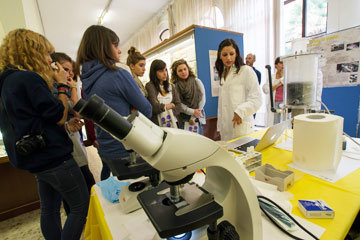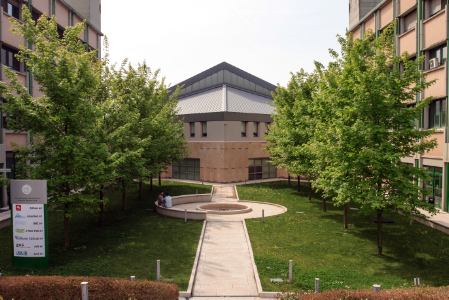Speaker:
Prof. Enrico Riccardi
- University of Stavanger, Norway
Tuesday, April 22, 2025
at
3:30 PM
Aula I di Ca' Vignal 2
Molecular simulation is a fundamental modelling approach that can be extremely accurate and extremely slow. When the subject of interest are transition events, such as protein folding or chemical reactions, the computational costs of sampling the dynamical behaviors of molecular systems become astronomical.
Rare event methods have proven dependable when sampling transition between stable states.
For these approaches, the main research question is: how to retain sufficient accuracy, dumping the unnecessary information, speeding up sampling?
Physics and statistical based approaches have been developed to answer this question, providing good results and advancements, but with diminishing returns. Machine learning seems promising to further boost the efficiency of the sampling. This latter is an open field, and many researchers are adopting data driven techniques trying to enhance the sampling efficiency. One of the main difficulties of the implementation of these approaches is their complexity, due to the conceptual background knowledge required for their adaptation.
In the talk, I will present a rare event approach, path sampling, and discuss a set of studies that we have completed in the recent years. Also, I will present an open source library, pyretis, that we have developed to support rare event method diffusion in the molecular modeling community.







